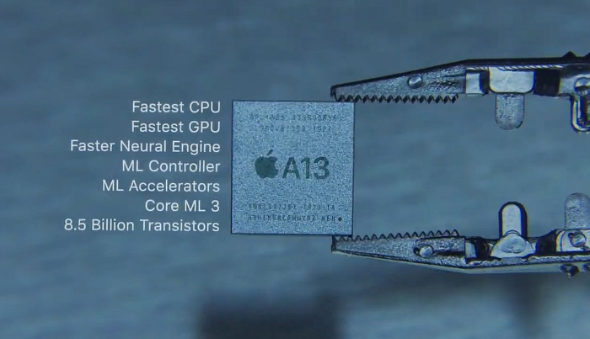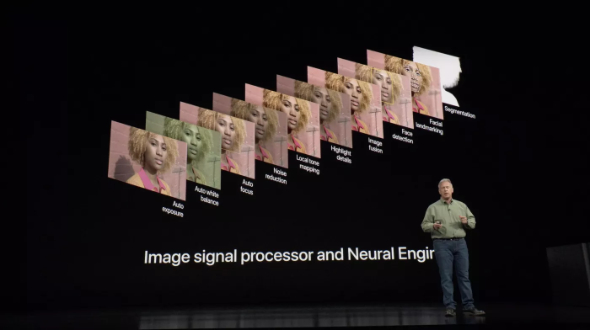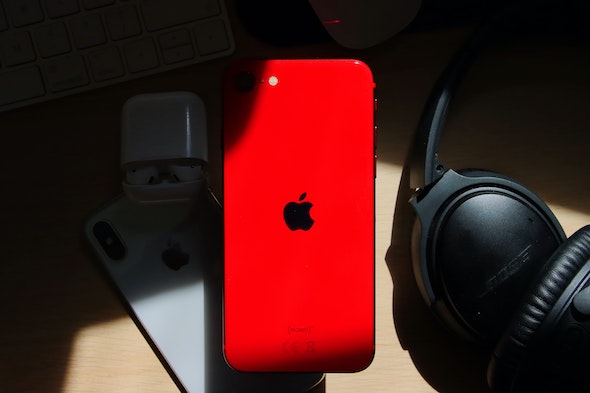Artificial intelligence techniques have spread strongly in the recent period. Of course, it had to extend to the worlds of photography. Indeed, the companies have made excellent use of the technology. From Apple and Google to small and Chinese companies that have used technology to a great extent to improve their cameras or add features, which are the so-called computerized imaging; So is technology absolutely beneficial? Or has it negatively affected the development of photography? Let's discuss together in this article.

What is computer imaging?

It is the use of computer processing techniques and artificial intelligence to process images after they have been captured to increase their quality. And it has been done in many ways, there is Apple, which increases the power of its processors year after year, has put a dedicated artificial intelligence engine in the chip to make those calculations, which include imaging. And there is Google, which does not rely heavily on hardware in the device, but rather on developing the system itself and artificial intelligence technologies in its cloud servers.
A revolution for better affordable phones

This is perhaps the best aspect of computerized photography ever. It has enabled companies to dramatically improve the quality of images and put inexpensive phones previously unimaginable features. Like the new iPhone SE, which has a great camera that surpasses the iPhone X's camera in image quality, despite the fact that its hardware is less in theory. You can also perform many effects that required a dual camera in the past, using only one camera. Google has it Pixel 4a phone Which costs approximately 1300 dirhams (350 US dollars) and is an average phone in some of its features and below average in others. But the camera is undoubtedly one of the best on the market with its excellent image quality and night mode. That's the power of computer photography. This is his soul. Get better photos with less hardware.
Saving money for businesses?

Yeah. Developing computer imaging is costing companies money from developing AI systems to programming it and improving its processing chips. But this is the natural development of technology, which has proven itself long ago. Companies are now saving money on the hardware side. Although the gear changes, it does not change as much as we used to see in the past. The difference in camera hardware between the iPhone 4s and 5 was significantly greater than the difference between the Xs and 11. It is not necessary for companies now to improve the technology of the sensors or strive to enlarge the pixels significantly, as we have seen in previous experiments. Just add a few more cameras and maybe a few minor gear changes then let the system take care of the rest.
what's the problem?

You may be asking this now. What is the problem with increasing corporate profits? What is the misfortune of having better priced phones with excellent cameras? I reply that this is all beautiful. But it does not have to be at the expense of the development of upper class phones. Especially since the higher category has increased its price dramatically, until the price of some of them starts at or reaches 1300 US dollars, 4800 UAE dirhams, or 22 thousand Egyptian pounds. And there is more to it than that. That's a lot of money. In return for all this money, I, as a user, expect a remarkable improvement in the camera. Not that it is the same as last year with a slight improvement caused by artificial intelligence. The problem here is that companies will not significantly develop the camera’s optics and hardware as long as they can get the money for cheaper, more lucrative upgrades.
Professional photography?

We have been dreaming for years that the phone will reach the stage of the professional camera. Indeed, the quality of the cameras has increased enormously. But most of the improvement is in the final post-processing image quality of the system. This might be great for the user on a daily basis. But what about the dream of professional photography? Capture RAW images with loads of information and then edit them in a custom program like Photoshop or Affinity to make them exactly as I want them to be? All of this requires a further improvement of the actual lenses and sensors. Greater improvements than what are currently being added by adding more cameras, whose quality is not even the same as the main camera. Rather, it only converges on expensive phones like the iPhone and moves away from it completely in cheaper phones like OnePlus Nord.
In the end, aren't these companies calling their products "Pro"? Which should be somehow "professional"?
Do we hate technology?

of course not. Technology is great. Personally, we all at iPhone Islam enjoy it to the fullest. I am even impressed every year with Apple's amazing explanation of how to process images on its phones. They are professionals in the show. But we must consider all aspects. And claim all improvements available as users. You may have heard of Apple breaking records in profits this year despite the epidemic and market woes. So a company like this can offer better development in all technologies. Especially when you're significantly overpricing their devices, or saving money on the chargers included in the box.


Thank you for the effort  
Thanks for all you present, you are really special
Thank you for your excellence
A very logical speech. I handed over the letters that drew these letters.
Thanks for everything you do
Hurray and high
For non-professionals, improving technology is sufficient, without exaggerating the prices. This is better for the average user .. Greetings for your efforts in raising these serious and useful topics.
Lovely
Nice words and in the heart of reality. The companies that sell their devices at a very high and great price must sincerely give the equivalent of technology and development for the user in order to be fair and honest, and not to be deception and exploitation of the user. Thank you.
Article👏🏻👏🏻
Thank you, may God grant you success
With your permission, I have a small problem
Suddenly the text of icons of iPads applications are small in size, in a funny and strange way, for no reason!
Is this one of the movements of the new update? Yesterday the system updated it
How do I get them back like before?
Turn off the device and turn it on to ensure that they return to the basic situation
The same thing happened to me
Excellent they really came back
Its idea of a bug update
Thank you very much